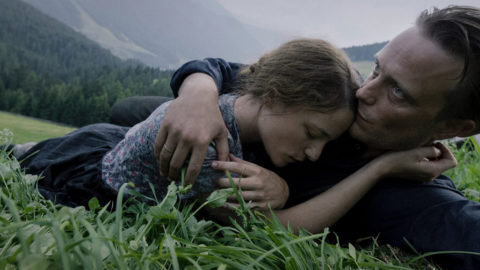Cannes 2019: Preview I
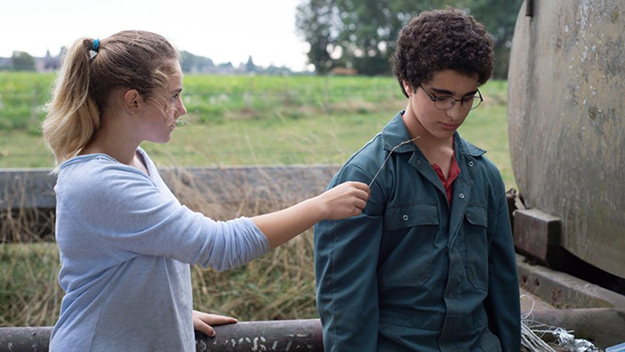
Young Ahmed (Jean-Pierre and Luc Dardenne, 2019)
One of the knocks against the Cannes Film Festival is their sometimes blind devotion to a certain roster of (mostly male) directors whose films show up in the competition like clockwork every two to three years. This year’s selection will do little to quell such complaints: perennials such as Ken Loach (Sorry We Missed You), Arnaud Desplechin (Oh Mercy!), and Jean-Pierre and Luc Dardenne (Young Ahmed) are all present and accounted for, while Jim Jarmusch’s star-studded opening night zombie flick The Dead Don’t Die marks the whopping ninth time he has been selected to vie for the festival’s top prize. As the Dardennes, eight-time contenders and two-time winners of the Palme d’Or, told Film Comment: “We were born in two countries, in Belgium and in Cannes.”
You might add another Cannes regular, Pedro Almodóvar, to the list, with Pain and Glory—and the advance praise from its Spanish release is already strong. In his review for Film Comment, Manu Yáñez Murillo called Almodóvar’s 21st feature “heartrending, meditative, and deeply confessional.” And as Almodóvar himself told Film Comment about Antonio Banderas’s dazzling performance playing a director: “He has fictionalized me within the rules of my own universe as a writer.”
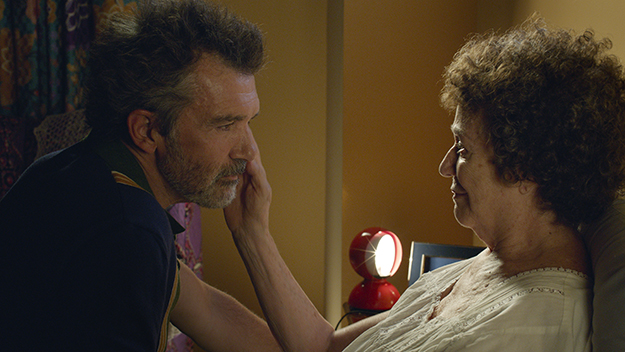
Pain and Glory (Pedro Almodóvar, 2019)
In any case, there are a number of veterans worth noting in the competition of the 72nd edition: American maverick Terrence Malick, whose A Hidden Life, a love story set in Nazi-occupied Austria, marks a supposed return to traditionally scripted drama for the ever-elusive director; Quentin Tarantino, back 25 years after Pulp Fiction won the Palme d’Or with the Summer of ’69 saga Once Upon a Time in Hollywood (after a mini-cliffhanger over its completion and inclusion); 79-year-young Italian master Marco Bellocchio, whose latest, The Traitor, an ’80s-set biopic about Sicilian mafia informant Tommaso Buscetta, will be his first in the main selection since 2009’s Vincere; previous Palme winner Abdellatif Kechiche, whose Mektoub, My Love: Intermezzo (a sequel to 2017’s Mektoub, My Love: Canto Uno) will reportedly run close to four hours in length; and the great Palestinian filmmaker Elia Suleiman, back in the fold with his first film in a decade, It Must Be Heaven, featuring the director himself in the lead role. (Look out for part two of Cannes preview coverage for more, on new films including the Competition debuts of Mati Diop, Céline Sciamma, and others.)

The Whistlers (Corneliu Porumboiu, 2019)
But for certain Cannes watchers, perhaps even more exciting than these is the arrival of Romania’s Corneliu Porumboiu to the competition after having multiple films screen in the Un Certain Regard and Directors’ Fortnight programs over the last 15 years. The wiliest and most formally restless of the New Romanian filmmakers, Porumboiu picks up a thread with his new film, The Whistlers, first laid down in 2009’s Un Certain Regard-winning Police, Adjective. Talking recently with Film Comment, the director said that, following the completion of that earlier fiction film, he stumbled upon a television show about a strange form of communication practiced on Spain’s La Gomera Island—a “whistling language” not unlike the sound of bird calls. “From the beginning,” he says, “I felt the whistling language of La Gomera was a way to continue exploring this topic [of language.]” (In addition to La Gomera, the film was shot in Romania and Singapore.) Asked how he would describe the film to a friend, Porumboiu, with typical devious humor, says: “To my childhood friends, I would tell them that I made sort of an action film and I would promise them that they won’t be bored at the end of it.”
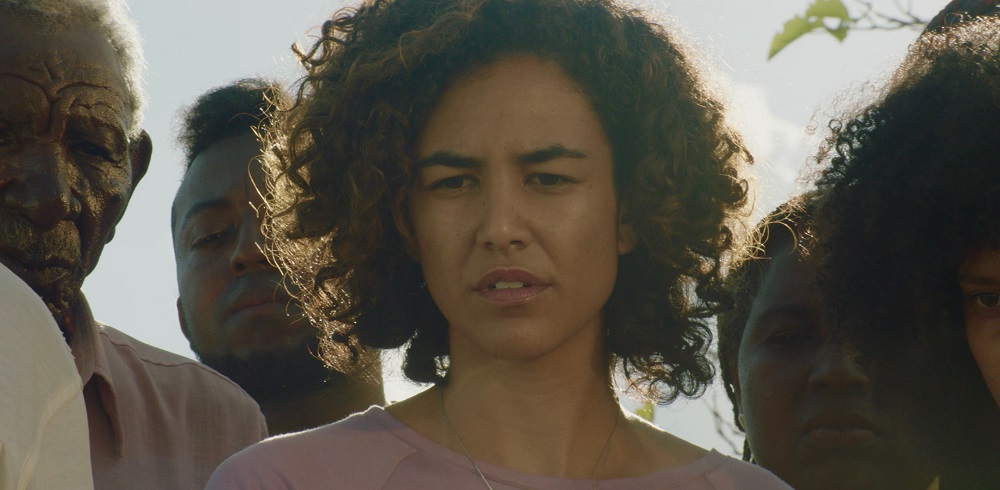
Bacurau (Kleber Mendonça Filho, 2019)
Another competition title that flirts with genre is Bacurau, by Brazilian director Kleber Mendonça Filho, whose feature Aquarius bowed on the Croisette in 2016. Set a few years in the future in the deserts of the Brazilian sertão, Bacurau follows a documentary filmmaker who visits a small village that’s vanished from the map. Conceived as a follow-up to Mendonça’s debut Neighboring Sounds and written and directed in collaboration with that film’s production designer, Juliano Dornelles, Bacurau was postponed when the script for Aquarius came together quicker than expected. Shooting on location in Rio Grande do Norte at the eastern edge of Brazil, the director describes the eight-week production as a “grueling [but] very happy experience.” With the “feel of a western,” it might be Mendonça’s most ambitious and visually spectacular film to date, and a belated coming-out party for Dornelles, whose art direction on Mendonça’s previous films has been among their most distinguishing features. (Meanwhile, back home in Brazil, the radical right-wing government took its latest potshot at the filmmaker with a demand to “repay” public funding for Neighboring Sounds.)
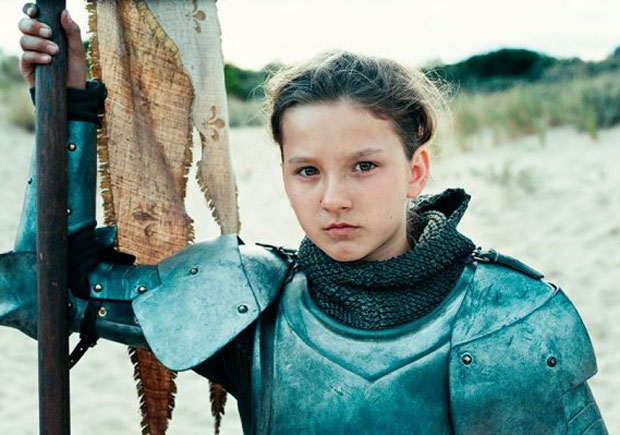
Jeanne (Bruno Dumont, 2019)
Established filmmakers are also scattered across the festival’s many parallel programs. It’s in the Un Certain Regard section, for example, that you’ll find Albert Serra’s Liberté, a filmed version of the controversial stage play the Catalan filmmaker mounted in Berlin in 2018; Jeanne, French director Bruno Dumont’s sequel to the absurd and inspired hair metal musical Jeannette, the Childhood of Joan of Arc; and Larisa Sadilova’s first feature in nine years, Once in Trubchevsk, a romantic drama set in a small village in the eponymous Russian city. Meanwhile, among the Special Screenings and Out of Competition selections, there’s Abel Ferrara’s Tommaso, a docudrama starring Willem Dafoe as a wayward actor living in Rome, playing opposite the director’s own wife and daughter; Werner Herzog’s Family Romance, LLC, about a man hired to impersonate the father of a missing 12-year-old girl; Alain Cavalier’s Être vivant et le savoir, an intimate video diary based on French writer Emmanuèle Bernheim’s 2013 autobiography; and Patricio Guzmán’s latest meditation on Chile’s checkered history, Cordillera of Dreams.
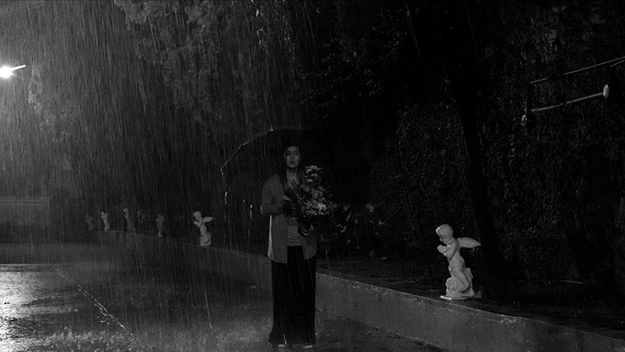
The Halt (Lav Diaz, 2019)
Which brings us to the Directors’ Fortnight, the independent sidebar that runs concurrent to Cannes. This year, two titles stand out: Bertrand Bonello’s Zombi Child, a Jacques Tourneur–inspired drama about a Haitian girl whose family history holds dire consequences for her classmates at a Parisian boarding school, and The Halt, a four-and-a-half hour sociopolitical parable from Filipino director Lav Diaz. Set in 2034, The Halt, as Diaz describes it to Film Comment, is a “discourse on the past and the present” inspired by a story about the killing of a dictator which the filmmaker originally wrote around the year 2000. During the shoot, when Diaz was writing and expanding on the story each day, “it became more of a perusal of a society environed by a very repressive setup and nature’s cataclysmic spins.” Shot with what he calls his regular “motley crew” in two small cities near Manila, with a few additional scenes filmed in a remote region of Siberia, the film (like Diaz’s last, the radical musical drama Season of the Devil) looks to frame the political turmoil of contemporary Southeast Asia in starkly allegorical terms. The Halt may have proven too much (in more ways than one) for the main slate, but it’s to the credit of all involved that films of a truly uncompromising nature can still find sanctuary somewhere under the bright lights of Cannes.
Jordan Cronk is a critic and programmer based in Los Angeles. He runs Acropolis Cinema, a screening series for experimental and undistributed films, and is co-director of the Locarno in Los Angeles film festival.



